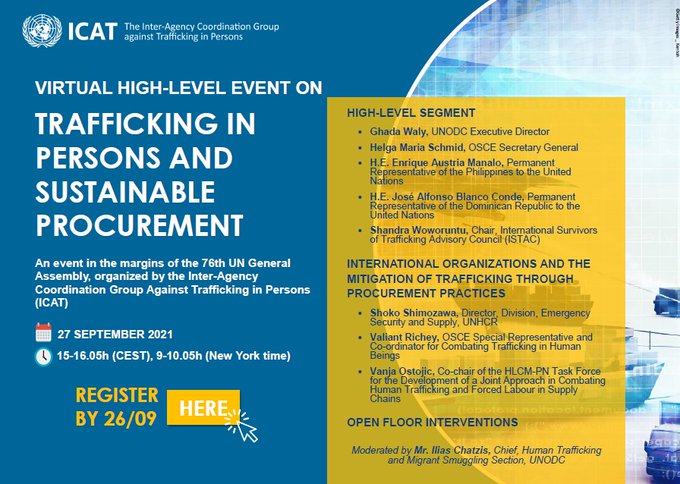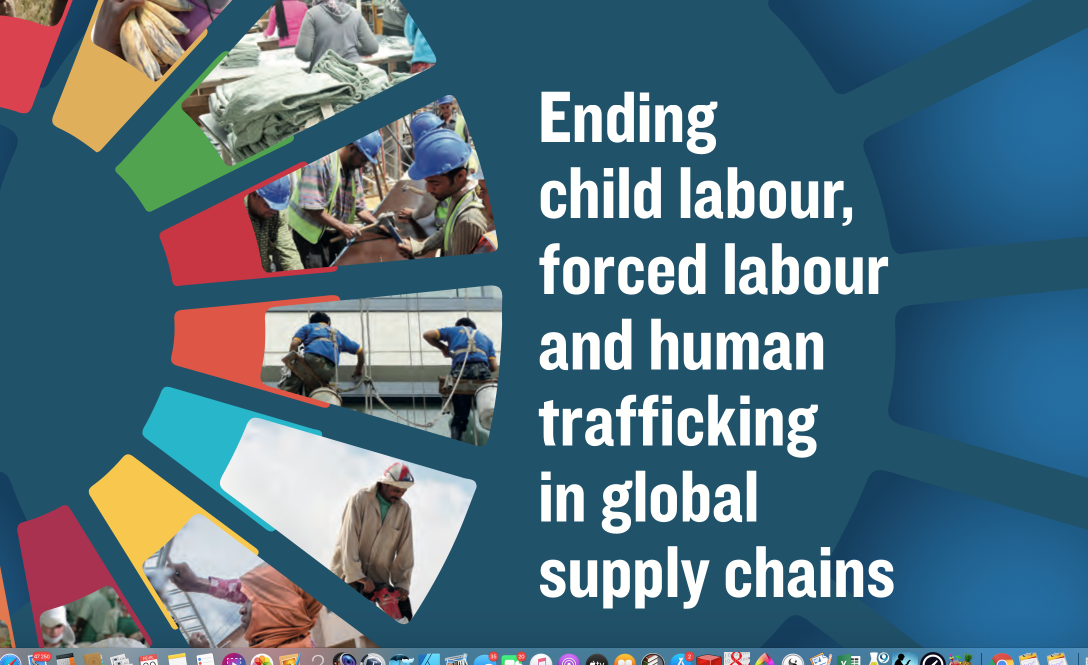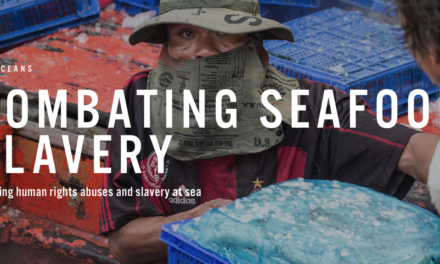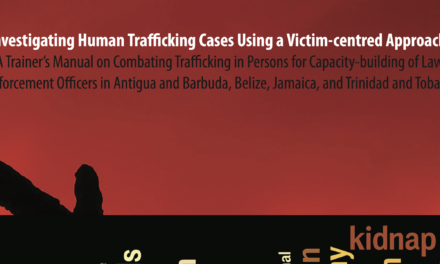An event in the margins of the 76th session of the U.N. General Assembly
to launch the Issue Brief on “Preventing Trafficking in Persons: The Role of Public Procurement”
by the Inter-Agency Coordination Group Against Trafficking in Persons (ICAT)
On September 27, 2021, ICAT organized an international seminar as a kick-off meeting to implement harmonized bidding rules and procurement policies within international organizations and member states. Keynote speakers, representing major international organizations and member states, demonstrated strong momentum for introducing laws to reduce the demand for human trafficking through public procurement regulation, to set an example for the private sector.
International and national normative and policy frameworks recognize the duty of governments to undertake due diligence to protect people against human rights violations, including trafficking in persons, in their procurement processes.
“Human rights due diligence” in supply chains refers to processes to identify, prevent, mitigate and remedy human rights violations associated with commercial activities and business partnerships, including procurement.
Trafficking in persons and child labour are amongst the human rights risks that can be addressed in the procurement process.
INTERNATIONAL FRAMEWORKS FOR STATES
The most sweeping obligation to address the demand aspect of trafficking for forced labour is found in Article 9(5) of the Protocol to Prevent, Suppress and Punish Trafficking in Persons, Especially Women and Children (Palermo Protocol), supplementing the United Nations Convention against Transnational Organized Crime. Article 9(5) requires parties1 to the Convention to take steps to “discourage the demand that fosters all forms of exploitation that lead to trafficking.”
Some countries have adopted laws on procurement, while others have adopted measures only on specific high-risk industries, for example cotton harvesting. A compilation of these national approaches can be found in the OSCE Compendium of relevant reference materials and resources on ethical sourcing and prevention of trafficking in human beings for labour exploitation in supply chains.xxi The document lists 130 initiatives of 35 different States, such as laws, policies, national action plans, and guidelines developed by national authorities to address forced labour and human trafficking in supply chains.
 Loading…
Loading…
 Loading…
Loading…


























